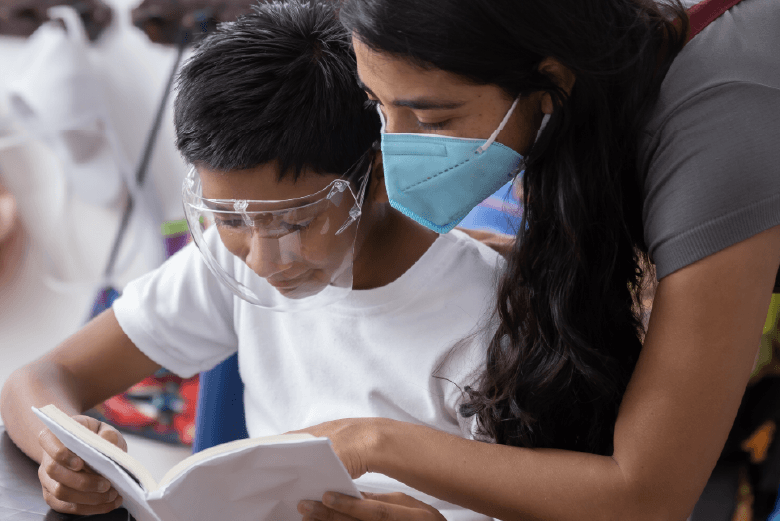It is a pleasure to collaborate with Find My Method to talk about a fundamental issue in adult sexual pleasure and the necessary Comprehensive Sexuality Education (CSE) in classrooms. Yes, I’m referring to schools, starting from preschool. 😊
You’ve probably raised your eyebrows in amazement; if so, I want to ask you what is surprising to you? Are you one of those people who believe that sexuality education is just saying thank you after a good sexual encounter? Well, no, that is not how it works.
Let’s start with what sexuality means to you? Are you thinking about what is done within the privacy of a room? Whew! If you assumed that, I invite you to follow the contributions that I will have in this space.
Would you believe me if I told you that sexuality is a public policy issue? Yes, that’s right. But, in order not to overwhelm you, let’s go slowly.
Sexuality As a Public Policy
The World Health Organization (WHO) defines sexuality as a central aspect of being human throughout life. It encompasses sex, gender identities and roles, sexual orientation, eroticism, pleasure, intimacy, and reproduction.
Sexuality is experienced and expressed in thoughts, fantasies, desires, beliefs, attitudes, values, behaviors, practices, roles and relationships.
While sexuality can include all of these dimensions, not all of them are always experienced or expressed.
Sexuality is influenced by the interaction of biological, psychological, social, economic, political, cultural, legal, historical, religious and spiritual factors.
Each point within the definition of sexuality deserves a separate study; however, I highlight point four which mentions that sexuality is influenced by the interaction of several factors, including political factors.
What does politics have to do with pleasure?
It has to do with Comprehensive Sexuality Education. Before moving on, I have another question: What do you imagine when you hear the term Comprehensive Sexuality Education in schools? I’m going to propose two options, these are not the only ones, but the most frequent ones.
Some people believe that showing how external or masculine condoms should be used is enough of an education for teenagers. The other expectation is that of a blonde, blue-eyed teacher with a deep cleavage, miniskirt, black framed glasses, and a beautiful body (according to beauty standards) using a pointer stick while looking flirtatiously at the audience she is educating.
The first option, the condom-use one, is popular when people ask me for a “girls and boys talk”. When I ask what they are expecting, it is usually condom use. Or when mothers and fathers are invited to CSE workshops for their teenagers, they answer that they’ve already been taught about condoms at school.
What does that mean? Have they been shown how to put on a condom? Did they manipulate it and practice with it? Did they get condoms to take home with them, learn how to negotiate them, and see both types of condoms? I don’t always have the chance to delve into the information that mothers and fathers have; I’ll always have my doubts.
The second alternative, perhaps you’ve realized, is the description of a pornography scene in which a woman plays the role of a teacher. Obviously, I describe it in a sarcastic tone; but, in my experience on social media, that is the scene that many adults imagine when talking about CSE in schools.
I want you to put aside both formal and comical examples in order to talk seriously about this topic.
What is comprehensive sexuality education (CSE)?
This is the definition of CSE according to the United Nations Educational, Scientific and Cultural Organization (UNESCO):
CSE is a curriculum-based process of teaching and learning about the cognitive, emotional, physical, and social aspects of sexuality. It aims to equip children and young people with knowledge, skills, attitudes, and values that will empower them to realize their health, well-being and dignity; develop respectful social and sexual relationships; consider how their choices affect their own well-being and that of others; and understand and ensure the protection of their rights throughout their lives.
Come on! Did you imagine such a definition? CSE is a PROCESS that is based on a curriculum to teach and learn … but, wait a second! What is a curriculum? Is it the one we carry around in order to get hired? No, that’s a curriculum vitae.
A curriculum or educational project is defined as a program in which the state/government specifies the ideological, social, anthropological, epistemological (of knowledge), psychological and pedagogical thoughts regarding the objectives of formal education/schools. They will put their stamp on the objectives to be achieved in terms of how the students’ profiles seem upon graduation, during their studies, and at the end of the educational process; as well as on what is expected of them, placing on them their planned political vision and deciding the content, disposition, needs to be met, teaching materials, technology, and of course budgets to launch those educational purposes.
Capisce? Read the definition of CSE one more time. Would you like your daughters, sons, nephews, nieces, granddaughters, grandchildren, students, or future generations in Mexico to be prepared and empowered and to experience sexuality at its fullest? Would you like them to enjoy their sexuality?
Will it be possible for CSE to be implemented in Mexico?
I know! Perhaps you have your doubts. I also have them, however, it is contemplated in the Constitution of our country. Article 3º states: Every person has the right to education. Surely you already knew that, but let me tell you something, Deputy María Celeste Ascencio Ortega presented an addition to Article 3º of the educational reform opinion in order to include sexual education in all academic plans and programs. This addition was voted, approved, and included in the Educational Reform of May 15th, 2019.
I am a teacher who is fully convinced that education is the way to transform society. I know it is a long road, however, little by little, we will see the transformations. For it to materialize, we need to count on the active participation of mothers and fathers so CSE is implemented in Mexico and sexuality becomes a matter of educational public policy with the federation budget necessary for its implementation and an open curriculum, without fear and based on scientific evidence and not on personal beliefs.
And I say to you, mothers and fathers, show interest in this issue, get documented with CSE specialists, share this publication with other mothers and fathers, defend CSE in private spaces, ask the government for school CSE programs and the budget to hire sexologists, and ask for schools to get specialists to participate at least once a month … What else can you think of?
See you in the next collaboration – I’ll say goodbye with one of my slogans: Pleasant and happy Comprehensive Sexual Education, free of stereotypes. 😊
Follow me! You can find me on all social media @NancyCaracoles.
About the author: Sexologist, Educator, Psychologist and Teacher with 20 years of experience. Specialized in unplanned teenage pregnancy prevention and promoter of sexual rights for young people. She has participated as an expert on different television and radio shows. Researcher for the pleasure of knowing and to ignore less.
Note: For more information about sexual health take a look at our blog.
Do you have something to share? Leave your comments below, contact us on our social media platforms: Facebook, Instagram, Twitter, YouTube and TikTok, send us an email to info@findmymethod.org. For more information on contraception, visit findmymethod.org.

